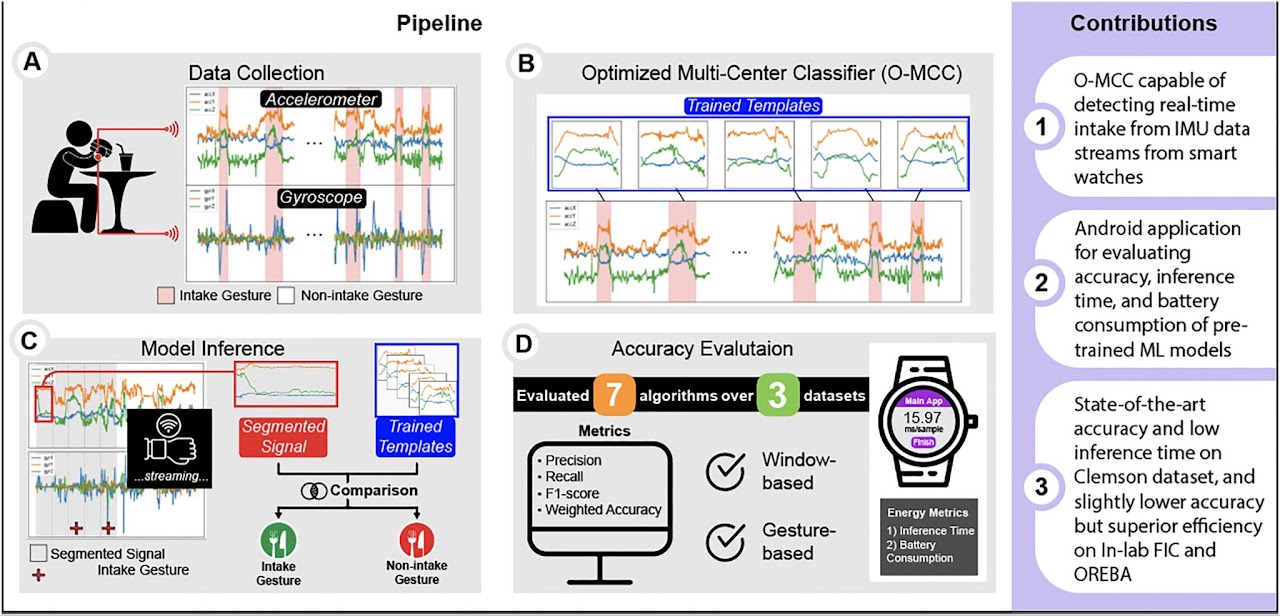An End-to-End Energy-Efficient Approach for Intake Detection with Low Inference Time Using a Wrist-Worn Sensor
Published in IEEE Journal of Biomedical and Health Informatics (JBHI), 2023
Summary: We present a low-latency, energy-efficient intake detection pipeline for wrist IMU sensors with end-to-end optimization.
Abstract
To support continuous dietary monitoring, we formulate intake detection as a constrained recognition problem optimized for wearable hardware. The system couples compact temporal encoders with template-aware post-processing to minimize compute and memory while preserving accuracy. Across curated free-living datasets, our approach reduces inference time and energy usage compared to heavier neural baselines, maintaining competitive detection metrics for bite/hand-to-mouth events. 
